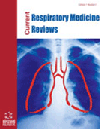
Full text loading...
Asthma is a common chronic respiratory condition characterized by inflammation and influenced by genetic and environmental factors. Medication non-adherence is a significant issue that negatively impacts health outcomes and increases healthcare costs globally. This review examines the factors contributing to non-adherence among patients with asthma, its effects on asthma control, and the role of pharmacists in enhancing adherence.
A comprehensive literature review was conducted to explore the issue of medication non-adherence in asthma management and to examine the important role of pharmacists in this context. Utilizing prominent scientific databases, the review presents evidence-based results.
Various factors contribute to non-adherence, including the chronic nature of asthma, complex treatment regimens, economic status, cognitive abilities, and fear of side effects. These factors lead to poor asthma control and increased healthcare costs. Pharmacists can improve asthma management through education, proper inhaler techniques, and personalized care plans. Interventions, including tailored regimens and technology, show promise for improving adherence.
Pharmacists significantly improve asthma management through patient education, ensuring correct inhaler use, and developing personalized care plans. Their involvement is linked to better medication adherence and asthma control, especially when using tailored regimens and digital tools.
Despite challenges in compliance and variability in adherence, evidence supports pharmacist-led interventions as effective for enhancing patient outcomes and quality of life, highlighting the importance of integrating pharmacists into healthcare teams.

Article metrics loading...

Full text loading...
References


Data & Media loading...

